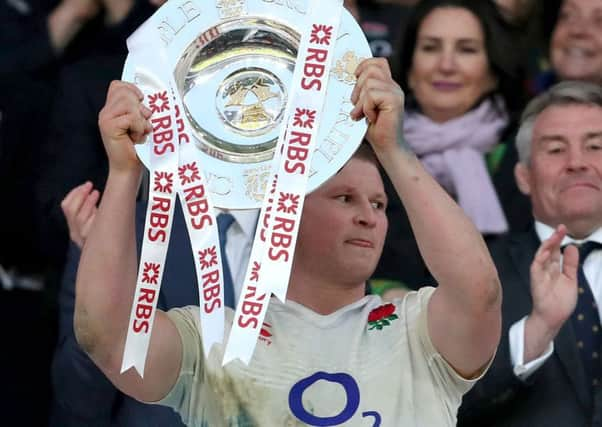Gareth Dyer's rugby union column


For a Welshman it is not easy to lavish praise in the direction of the old enemy but I can say that if they complete the Slam then it will be just reward for their positive approach.
For it is England above the other teams who have embraced the need to add some much-needed attacking style to their game rather than place their emphasis on safety first rugby.
Advertisement
Hide AdAdvertisement
Hide AdWhilst the tournament has got better as it has gone on, another slow start and some pretty ordinary rugby has again been overly evident in this year’s tournament.
Before the tournament I made it clear that to rebuild Northern Hemisphere credibility, whoever won the Championship needed to show more than just an ability to grind out a series of attritional victories.
England have won the Six Nations because they have been brave enough to play to a positive style.
Yes, it has been rough around the edges – particularly in the stodgy performances against Scotland and Italy – but against Ireland and Wales they put their faith in attacking to win, rather than defending not to lose.
With this mind-set they are heading in the right direction.
Advertisement
Hide AdAdvertisement
Hide AdOn that alone we as Northern Hemisphere rugby fans should – putting our national leanings to one side – be encouraged that their approach has been rewarded.
The manner of the English victory over Wales was tournament-defining for both teams and hints that England are on their way back to the top table of the international game.
The strangeness of Saturday’s game is that Wales scored three tries to England’s one in the final reckoning.
A Welsh win at the death would have been undeserved and whilst defeat was hard to take, the fact that Wales only came into the game when they decided to throw caution to the wind should be put into greater context than just a desperate team trying to pull the game out of the fire.
Advertisement
Hide AdAdvertisement
Hide AdFor Wales are the anomalies in this year’s tournament. Their coaching team remains either unable or unwilling to set their players free.
Questions were asked why England dominated so much for an hour on Saturday against a highly-fancied Welsh team containing proven world-class players.
The answers to me became clearer when we learned after the game that a number of players, including the talismanic Alun Wyn Jones and Sam Warburton, went into the game less than 100% fit.
This is not an attempt to excuse them.
But what is clear is that if you want to play an attritional, body-sacrificing style of physical rugby then you cannot do so with players who are less than 100% fit.
Advertisement
Hide AdAdvertisement
Hide AdI also wonder if mentally the Welsh team is stale and bored of the style – and when I say style I mean in terms of approach, rather than the aesthetic version – they are asked to perform week in, week out.
It was stark that when they were given licence to attack, the players suddenly became energised and full of running.
If Wales are to evolve then George North should be the linchpin of the style, not there to be used as an unsubtle battering ram.
One area that has intrigued me during the Championship has been the teams’ respective selections at inside centre.
Advertisement
Hide AdAdvertisement
Hide AdThe second receiver position can be the most effective area from which to launch attacks, particularly off first-phase ball.
There is the potential for more space if that player can hold their attacking depth, whilst a strong passing ability opens up more target running options than those stood in the first receiver role.
England have picked Owen Farrell at inside centre as a second passing option.
This has ensured the English outside backs have had more ball than any other team in the Championship from first and second phase ball.
Advertisement
Hide AdAdvertisement
Hide AdContrast this with Wales and Ireland – who have picked ball carrying runners at 12 – and the lack of quick ball their outside backs have had to attack.
As the legendary Steve Fenwick said at the recent Hoppers sportsman’s dinner, if he was still playing outside centre for Wales then he wouldn’t hold his breath for an attacking pass.
Scotland have also tried to get a distributor into their team at second receiver and this has clearly added to their attacking penetration. They impressed in beating France and the emergence of Duncan Taylor in midfield has added much to their try scoring threat.
France at times at Murrayfield threatened to take a step forward.
Advertisement
Hide AdAdvertisement
Hide AdThere were glimpses of fluidity that raised the pulse but they are mentally weak, lack the required fitness and once the pressure came on, they wilted once more.
That they can refuse to match Fofana and Fickou as their first choice centre partnership is a frustration for fans of style and grace.
So in conclusion, there are signs of life in Northern Hemisphere rugby after the disappointment of the World Cup.
England have been prepared to play heads-up rugby and they have been rewarded as a result. The others should quickly take note.